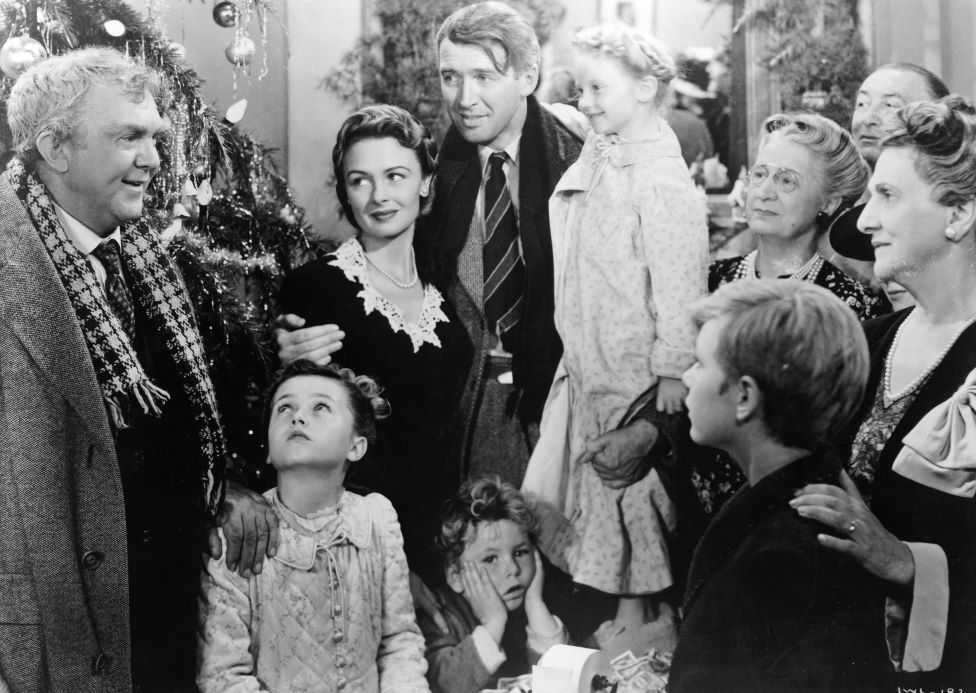ARTICLE AD BOX

James Stewart and Donna Reed star in It's A Wonderful Life, which is still hugely popular at the Glasgow Film Theatre
By Jonathan Geddes
BBC Scotland News
It is a much loved festive film - and for one cinema It's a Wonderful Life is the Christmas gift that keeps on giving.
The 1946 classic, which stars James Stewart as a put-upon everyman considering suicide one snowy Christmas Eve, is such a fixture at the Glasgow Film Theatre (GFT) that it has been the venue's biggest earner for 12 of the last 15 years.
Much like Stewart's character George Bailey, the impact of the film has far-reaching consequences, as it raises funds that support the GFT's remit to spotlight independent and alternative cinema.
Famously, the Frank Capra directed fantasy drama failed to break even when it was first released, but became a TV fixture after the rights to the film entered the public domain in 1974.
Image source, GFT
Image caption,The Glasgow Film Theatre screens alternative and independent cinema
That prompted Allison Gardner, who is now the chief executive of Glasgow Film, to decide to program It's A Wonderful Life for the GFT during the 1990s.
She recalled: "People had become familiar with it from TV over the years, and when we found a print we thought it would be great to show it in a cinema. A few years later the film distributor Park Circus picked it up and started distributing it.
"I think around 2008 or 2009 was when we really started to make it a big part of the schedule. The peak number we had was 52 showings of it one December."
Image source, Park Circus
Image caption,It's A Wonderful Life shows the romance between George Bailey (James Stewart) and Mary Hatch (Donna Reed)
Over the years showings have been accompanied by everything from fake snow in the foyer to a pianist playing music prior to the film.
It is screened at the cinema up until Christmas Eve each year, and since 2005 the GFT has sold around 130,000 tickets, with some film fans returning to watch it every year as a Yuletide tradition.
Mrs Gardner believes that the key appeal of the film lies in the story and message running through it, with Stewart's character shown an alternative life where he never existed by his guardian angel, Clarence.
She explained: "I think it's a very GFT film, and a very Glasgow film. It's dark, it's about suicide, it's anti capitalist in that it's all about co-operation and community, and I think that explains the cross-generational appeal it has."
Image source, Park Circus
Image caption,Despite being a Christmas favourite, the film has dark scenes throughout it
That sentiment is supported by Dr David Sorfa, a senior lecturer in film studies at Edinburgh University, who pointed to the film's contrast between the "good capitalism" of George Baily and "the Trump-esque greed is good" style of the film's villain, Mr Potter.
Dr Sorfa said: "I think it makes people ask 'could my life be better' and the film answers that by saying 'no, this is the best life even if you don't realise it'.
"It has the idea that virtue is its own reward, but that it can also reward you in return, where everyone in the town helps him out at the end.
"Yes, it layers the sentimentality on thickly but at Christmas it's nice to have that fantasy of what the world is like."
For the GFT, the film is helpful in reality as well as fantasy.
As a charity, more than half of the expense of the cinema's running costs and community projects are covered by ticket sales and bar profits, with It's A Wonderful Life being a consistent earner.
Mrs Gardner believes it helps bring in an "intergenerational audience" to the cinema, sometimes for the first time, and because of that it has become "very important" to the GFT as a whole.
She added: "Every penny spent here goes back into the cinema, and that means we can show films that wouldn't have a home at any other cinema in the city.
"The more successful it is, the more we can bring in some hidden gems that will hopefully be loved in years to come."

 1 year ago
34
1 year ago
34








 English (US) ·
English (US) ·